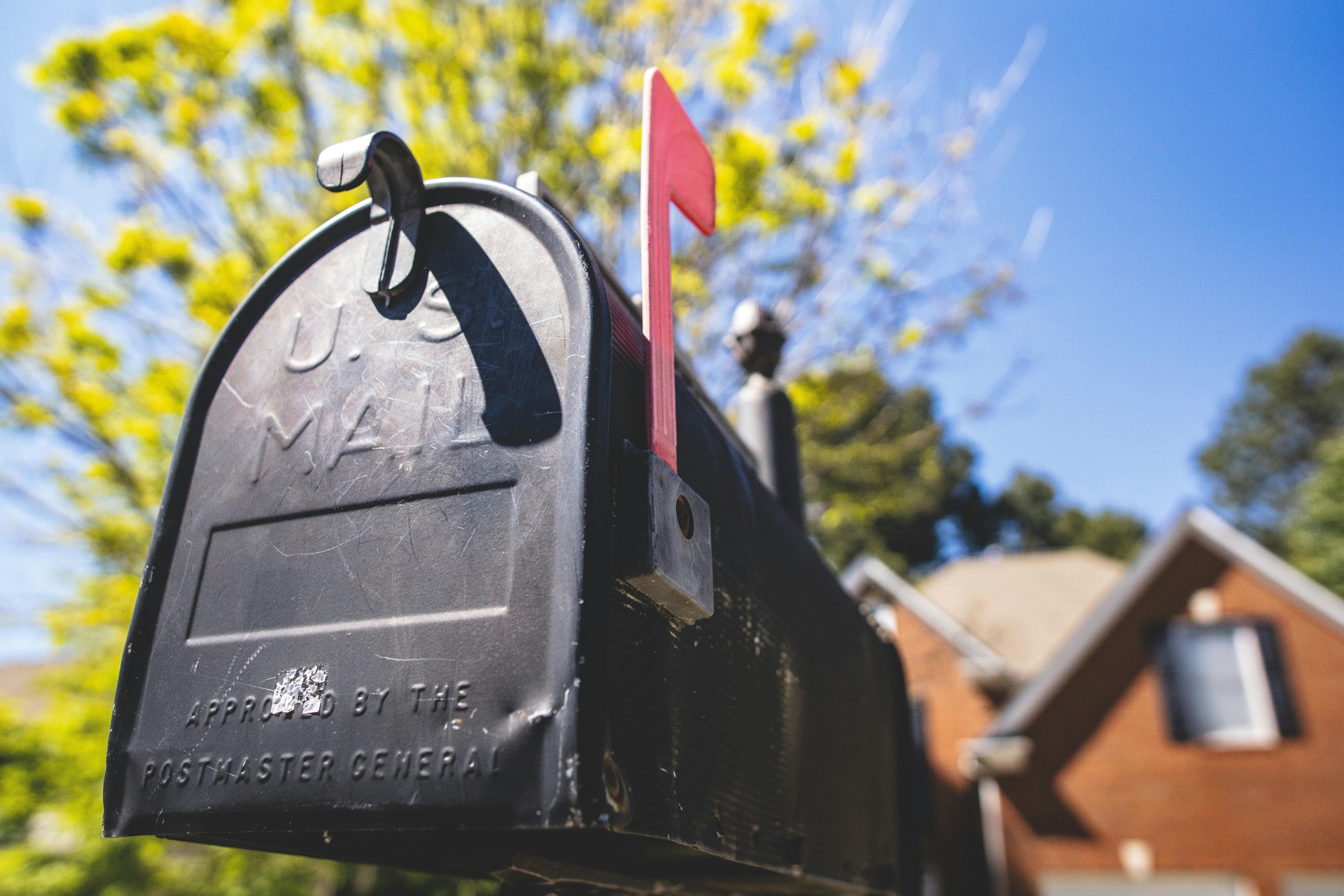Maximize Efficiency with Follow Up Automation for Estate Related Leads

If you're marketing to probate and inherited property leads, you're dealing with people navigating loss and complex decisions, so follow-up automation is essential to stay top-of-mind without being pushy. Automated follow-ups help you maintain consistent, respectful contact that nurtures leads over time, increasing your chances of securing deals while saving time and managing interactions professionally through CRM systems. By blending automation with empathy, you can deliver personalized, tactful communications that support prospects through their journey, ensuring you remain a trusted resource in the sensitive estate-related real estate market.
Why Follow-Up Matters So Much with Probate Leads
Timing is Everything in Estate Sales
Probate leads take time to convert. Heirs often need weeks—or months—before they're ready to talk about selling the family home. But if you're not there when that time comes, the deal goes to someone else. Automation tools help you respond to leads faster, increasing your chances of securing the deal.
The Emotional State of the Prospect
Remember, you're dealing with real people who are often grieving, overwhelmed, and unfamiliar with the process. Following up too aggressively can feel insensitive. But if done gently and consistently, your message will be welcomed when the time is right.
Most Investors Quit Too Early
Most wholesalers and investors send one letter or make one call—and give up. That's your edge. If you follow up 5–7 times with empathy and intention, you'll stand out in a sea of noise. Automated follow ups make it easy to maintain regular, empathetic contact without manual effort.
What Is Follow-Up Automation and Why Use It?
Definition and Key Benefits
Follow-up automation means using tools to send messages, reminders, or tasks without having to do it manually every time. It helps you:
Save time
Stay consistent
Convert more leads
Look professional
Easily manage contacts and interactions with customer relationship management (CRM) systems.
Manual vs Automated Follow-Up
Manual follow-up is personal but inconsistent and hard to maintain. Automated follow-up is consistent but can feel robotic—the key is to blend the two. That's the goal. The right balance allows you to deliver personalized communications at scale, ensuring each client receives tailored messaging while maintaining efficiency.
How It Helps You Stay Compliant and Professional
With the right setup, you can follow TCPA, CAN-SPAM, and other regulations effortlessly—while tracking every interaction. Having a reliable CRM is important to ensure tracking is organized; to see good options for real estate CRMs, read Top 10 Best CRM for Real Estate Investors in 2026.
Understanding Your Estate-Related Lead
Different Stages of the Probate Process
Not all probate leads are created equal. Some are just filed, while others are already in motion. Tailor your message depending on where they are:
Pre-probate (to learn more, read Maximize Your Success with Pre Probate Leads: A Comprehensive Guide)
Active probate (see How to Find Probate Leads for Real Estate Success)
Post-probate (property now in heir's name)
Additionally, automation can be used to educate heirs about the home buying process if they are considering purchasing another property.

Decision-Makers vs Family Members
Sometimes the heir is the executor. Sometimes they're not. You may be talking to a sibling who has no say in the decision. Your message should respect that dynamic.
Common Objections You'll Face
Think of these responses not as rejections. Rather, they're signals for how to adjust your follow-up.
"We're not ready yet."
"We're keeping it in the family."
"We already have an agent."
Choosing the Right Channels for Follow-Up
Phone Calls
Still one of the most effective touchpoints. Leave a voicemail that sounds personal—not scripted. Remember to keep your tone warm and empathetic to build trust and encourage a callback. To learn more about ensuring your phone calls are effective and personal, read Effective Strategies to Call Motivated Sellers for Real Estate Success.
Email Sequences
Play around with your sequence but try using a 4–7 email drip over 60 days. Automated follow up emails help nurture leads and maintain engagement. Keep it light, helpful, and informative. Personalized email campaigns can further increase the effectiveness of your email outreach by addressing specific concerns or stages in the probate process. To learn more if you're interested in starting an email campaign, see Email Marketing for Real Estate Investors: Strategies for Success.
SMS Automation
Text messages get read. Use sparingly, always offer opt-out, and make it sound like it's from a real person. Timing is key—send texts at appropriate times to respect the recipient's privacy and increase the chance of a positive response. This outreach requires careful planning to ensure you aren't violating any privacy laws, to learn more see Top SMS Campaigns for Real Estate Investors: Boost Your Outreach Today.
Direct Mail Follow-Ups
Yes, direct mail still works—especially in probate. Send follow-up letters or postcards every 30–45 days to gently remind heirs of your availability and services. This traditional method complements digital outreach by adding a personal touch that can stand out during a sensitive time. Consistent, respectful direct mail helps build trust and keeps your real estate business top-of-mind without overwhelming potential clients. To learn the details about the types of letters you should be sending, read Maximize Your Impact with Real Estate Direct Mail Strategies for 2026.

Building a Compassionate Follow-Up Sequence
30-Day, 60-Day, 90-Day Structure
Here's a simple follow-up sequence to keep your probate leads engaged over time: In the first week, send an initial letter or email to introduce yourself and offer help. Around week three, follow up with a call or voicemail to establish a more personal connection. By week five, send a helpful resource email, such as a guide on what to do with inherited property. At week eight, reach out with a gentle message letting them know you're still available if they need assistance. Finally, at week twelve, send a final, soft check-in to maintain contact without being intrusive.
Message Tone and Timing
Avoid pressure or urgency. Use phrases like:
"Just checking in."
"Only reaching out if it's helpful."
"Here to answer any questions—no strings attached."
Providing Value with Every Touchpoint
Send links to probate resources, guides, or referrals. Content marketing is a powerful way to provide ongoing value and establish yourself as a trusted resource. Position yourself as someone who helps—not just buys.
The Best Automation Tools for Probate Lead Follow-Up
REsimpli, InvestorFuse, and FreedomSoft
These are designed for real estate investors. They let you build campaigns, track touches, and manage leads in one dashboard. Many modern platforms now incorporate AI tools to further enhance lead tracking and engagement.
CRM Systems with Drip Campaigns
Tools like HubSpot, ActiveCampaign, and GoHighLevel allow for advanced segmentation and automated workflows. These systems can also automate lead routing to ensure timely follow-up by the right team member. To learn which CRM campaign might be right for you, see Top 10 Best CRM for Real Estate Investors in 2026.

Combining Tech with a Human Touch
When to Manually Reach Out
If a lead clicks a link, opens 3+ emails, or visits your site multiple times, it's a clear signal to pick up the phone. This indicates heightened interest and presents the perfect opportunity to personalize your next interaction, making your outreach more meaningful and effective. Timely manual follow-up can help build trust and move the conversation forward when automation alone isn't enough.
Personalization Tips That Don't Feel Robotic
Use merge fields wisely to add a personal touch without sounding scripted. Incorporate details such as the decedent's name, property location, or relevant local market information to show you've done your homework. This approach helps your messages resonate more deeply, making recipients feel valued and understood rather than just another contact on a list.
Voice Message Follow-Ups (Voicemail Drops)
Tools like Slybroadcast allow you to leave a voicemail without ringing the lead's phone, providing a non-intrusive way to stay in touch. These voicemail drops are perfect for sending reminders, soft touches, or quick updates without interrupting their day. Consistent use of this tactic can keep you top-of-mind while maintaining a respectful distance.
Compliance and Ethics When Automating Probate Outreach
TCPA and CAN-SPAM Basics
Always include opt-out in texts and emails
Don't text leads without consent if they're on the DNC list
Avoid misleading subject lines
Getting Consent and Managing Opt-Outs
Use a system that tracks unsubscribes. Respect opt-out requests immediately to maintain trust and ensure compliance with communication regulations.
Respecting Grieving Timelines
If someone says "not ready," don't just snooze them. Pause outreach for 90+ days and send a softer re-entry message later.

Follow-Up Metrics to Track
Key metrics to track include email open rates, which indicate the effectiveness of your subject lines; text reply rates, measuring engagement; callback conversions, tracking interest turning into action; and response timelines, which help optimize future follow-up sequences. Monitoring these metrics enables data-driven decisions to improve your follow-up strategy and increase conversion rates. Additionally, including search engine performance as a lead source is important for a comprehensive view of your lead generation efforts.
How to Handle Responses and Objections Gracefully
Scripts That Sound Empathetic, Not Salesy
"Totally understand. If now's not the right time, I'm happy to stay in touch or check back later."
What to Say When They Ask, "How Did You Get My Info?"
"It's from public probate records. I only reach out to see if I can be helpful during a tough time. Happy to remove you from my list."
When to Back Off—and When to Lean In
Always listen for their emotional state. If someone is frustrated or grieving heavily—pause. If they're asking questions—lean in with clarity, not a pitch.
Future Trends and Best Practices in Estate Lead Follow-Up Automation
The real estate industry is evolving rapidly, with new tools helping professionals streamline marketing, nurture estate-related leads, and enhance client experiences. Embracing AI-driven insights, personalized automation, and compliance features allows agents—whether solo or in teams—to optimize follow-up, save time, and build stronger relationships. Top investors use these technologies to analyze leads, predict trends, and focus on closing deals. By adopting these innovations, real estate professionals can stand out, maintain consistent communication, and achieve lasting business growth.
Emerging Technologies and AI in Follow-Up
Artificial intelligence and machine learning are transforming the way real estate professionals approach follow-up. Today's automation tools do much more than just send scheduled messages—they analyze lead behavior, predict buyer intent, and tailor follow-up messages to each individual's needs. For example, AI-powered chatbots can engage leads instantly, answer common questions, and route more complex inquiries to the right team member, ensuring no opportunity slips through the cracks. Machine learning algorithms optimize marketing strategies by identifying patterns in buyer behavior and market trends, allowing you to focus your marketing efforts on leads most likely to convert, saving time and increasing ROI.
By leveraging these advanced automation features, real estate professionals can deliver smarter, more timely follow-up that resonates with today's tech-savvy clients. To learn more about how you can use AI to help develop your business and marketing, read AI for Real Estate Marketing: How Smart Tech Is Transforming the Industry.
Personalization at Scale
Personalized communication is essential for building trust and nurturing leads, but doing it manually for every contact is nearly impossible—especially as your database grows. Fortunately, modern automation tools make it easy for real estate professionals to deliver personalized messages at scale. Automated email campaigns can be tailored to each lead's interests, property preferences, and stage in the sales funnel, while social media posts can be scheduled to reach targeted audiences across multiple channels. Lead scoring and routing features ensure that high-value leads receive prompt, personalized attention from your team, while lower-priority leads are still nurtured with relevant content. By combining automation with smart segmentation, you can maintain a consistent presence, engage leads with meaningful follow up, and build strong relationships—without sacrificing efficiency.

Adapting to Changing Regulations
Compliance is a moving target in the real estate industry, with new regulations like GDPR and evolving privacy laws shaping how real estate professionals collect and use client data. Automation tools can help you stay ahead of these changes by providing built-in compliance features, such as customizable consent forms, automated opt-out management, and secure data storage.
By integrating these tools into your marketing processes, you can ensure that your follow up efforts are both effective and compliant. This not only protects your business from potential penalties but also builds trust with your leads, showing them that you take their privacy and preferences seriously.
Staying Ahead: What Top Investors Are Doing Next
Top investors and real estate teams stay ahead by using automation tools and AI to analyze leads, predict market trends, and optimize marketing strategies. Automating repetitive tasks lets them focus on building relationships and closing deals while improving marketing across channels like social media and email campaigns. Follow-up automation is essential for any real estate professional aiming to grow, whether solo or part of a team, helping save time, nurture leads, and provide consistent, personalized service.
Final Thoughts: Automation Is the System, Empathy Is the Strategy
Automation doesn't replace you—it amplifies you. Real estate marketing automation can streamline the management and distribution of property listings, making it easier to keep your listings up-to-date and visible across multiple channels. By using the right tools, messages, and timing, you can stay top-of-mind without being pushy or cold. Your goal is to be the first person they think of when they're ready, which only happens when you consistently show up with value, care, and engagement. Capturing and nurturing leads should be ongoing priorities, and automation helps ensure no opportunity is missed. To expand your knowledge on marketing for your business, see Top Strategies in Digital Marketing for Real Estate Investing.